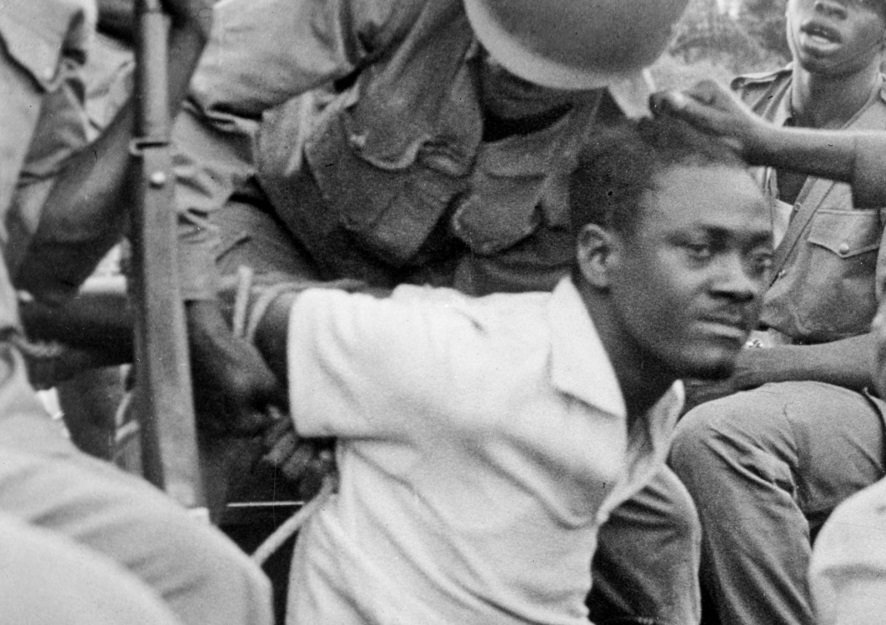Born on July 2, 1925, Patrice Emery Lumumba was only 36 when he was brutally assassinated on January 17, 1961. After being executed by firing squad, his body was exhumed and dissolved in acid. He was the first legally elected prime minister of the Republic of Congo after he helped the country gain its independence from Belgium in 1960.
Patrice is known as one of the youngest African leaders becoming the first prime minister of Congo at 35 on June 30, 1960. His rule as Prime Minister lasted for 7 months until his arrest. Lumumba was also a Pan-Africanist and political activist before he became prime minister.
During his short lifetime, Lumumba wrote many addresses and letters for conferences. Many of the letters he wrote were written in prison to the United Nations and the United States but both bodies looked on as Lumumba was wrongfully held captive in prison. He also wrote a few personal letters to his wife and friends pouring out his sentiments and harsh living conditions.
Below is the last official letter written by Patrice Lumumba on January 4, 1961. The letter was written two weeks before his assassination to the special representative of the U.N secretary-general to address his conditions in the prison cells and the wrongful treatment that had been meted out to him.
LETTER TO A. M. DAYAL, SPECIAL REPRESENTATIVE OF THE U.N. SECRETARY-GENERAL
Thysville, January 4, 1961
Mr. Special Representative,
On December 27 last, I had the pleasure of receiving a visit from the Red Cross, which occupied itself with my plight and with the plight of the other parliamentarians imprisoned together with me. I told them of the inhuman conditions we are living in.
Briefly, the situation is as follows. I am here with seven other parliamentarians. In addition there are with us Mr. Okito, President of the Senate, a Senate employee and a driver. Altogether there are ten of us. We have been locked up in damp cells since December 2, 1960, and at no time have we been permitted to leave them. The meals that we are brought twice a day are very bad. For three or four days 1 ate nothing but a banana. I told this to the Red Cross medical officer sent to me. I spoke to him in the presence of a colonel from Thysville. I demanded that fruit be bought on my own money because the food that I am given here is atrocious. Although the medical officer gave his permission, the military authorities guarding me turned down my request, stating that they were following orders from Kasavubu and Colonel Mobutu. The medical officer from Thysville prescribed a short walk every evening so that I could leave my cell for at least a little while. But the colonel and the district commissioner denied me this. The clothes that I wear have not been washed for thirty-five days. I am forbidden to wear shoes.
In a word, the conditions we are living in are absolutely intolerable and run counter to all rules.
Moreover, I receive no news of my wife and I do not even know where she is. Normally I should have had regular visits from her as is provided for by the prison regulations in force in the Congo. On the other hand, the prison regulations clearly state that not later than a day after his arrest a prisoner must be brought before the investigator handling his case. Five days after this a prisoner must again be arraigned before a judge, who must decide whether to remand him in custody or not. In any case, a prisoner must have a lawyer.
The criminal code provides that a prisoner is released from prison if five days after he is taken into custody the judge takes no decision on remanding him. The same happens in cases when the first decision (which is taken five days after a person is arrested) is not reaffirmed within fifteen days. Since our arrest on December 1 and to this day we have not been arraigned before a judge or visited by a judge. No arrest warrant has been shown to us. We are kept simply in a military camp and have been here for thirty-four days. We are kept in military detention cells.
The criminal code is ignored as are the prison rules. Ours is purely a case of arbitrary imprisonment. I must add that we possess parliamentary immunity.
Such is the situation and I ask you to inform the United Nations Secretary-General of it.
I remain calm and hope the United Nations will help us out of this situation.
I stand for reconciliation between all the children of this country.
I am writing this letter secretly on bad paper. I have the honour to be, etc.
Patrice LUMUMBA,
Prime Minister
Source: Patrice Lumumba, The Truth about a Monstrous Crime of the Colonialists, Moscow, Foreign Languages Publishing House, 1961, pp. 68-69.










